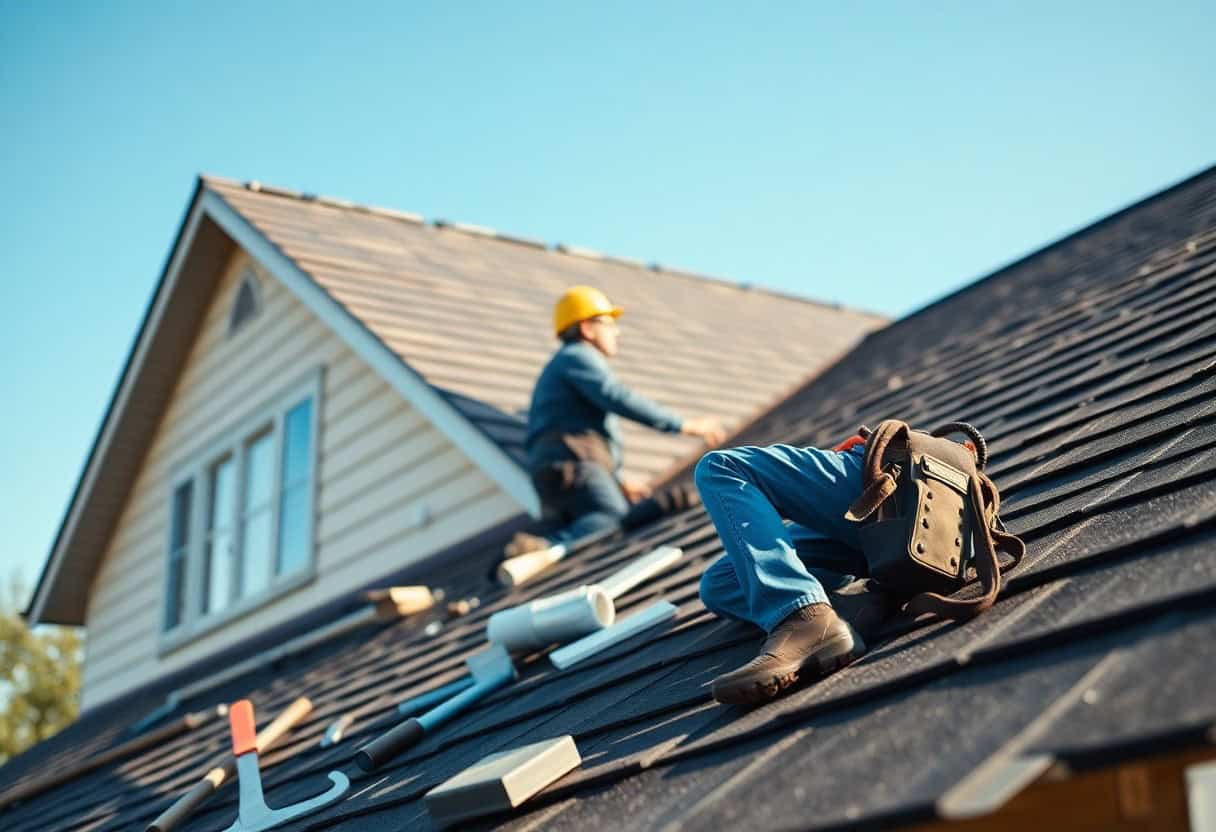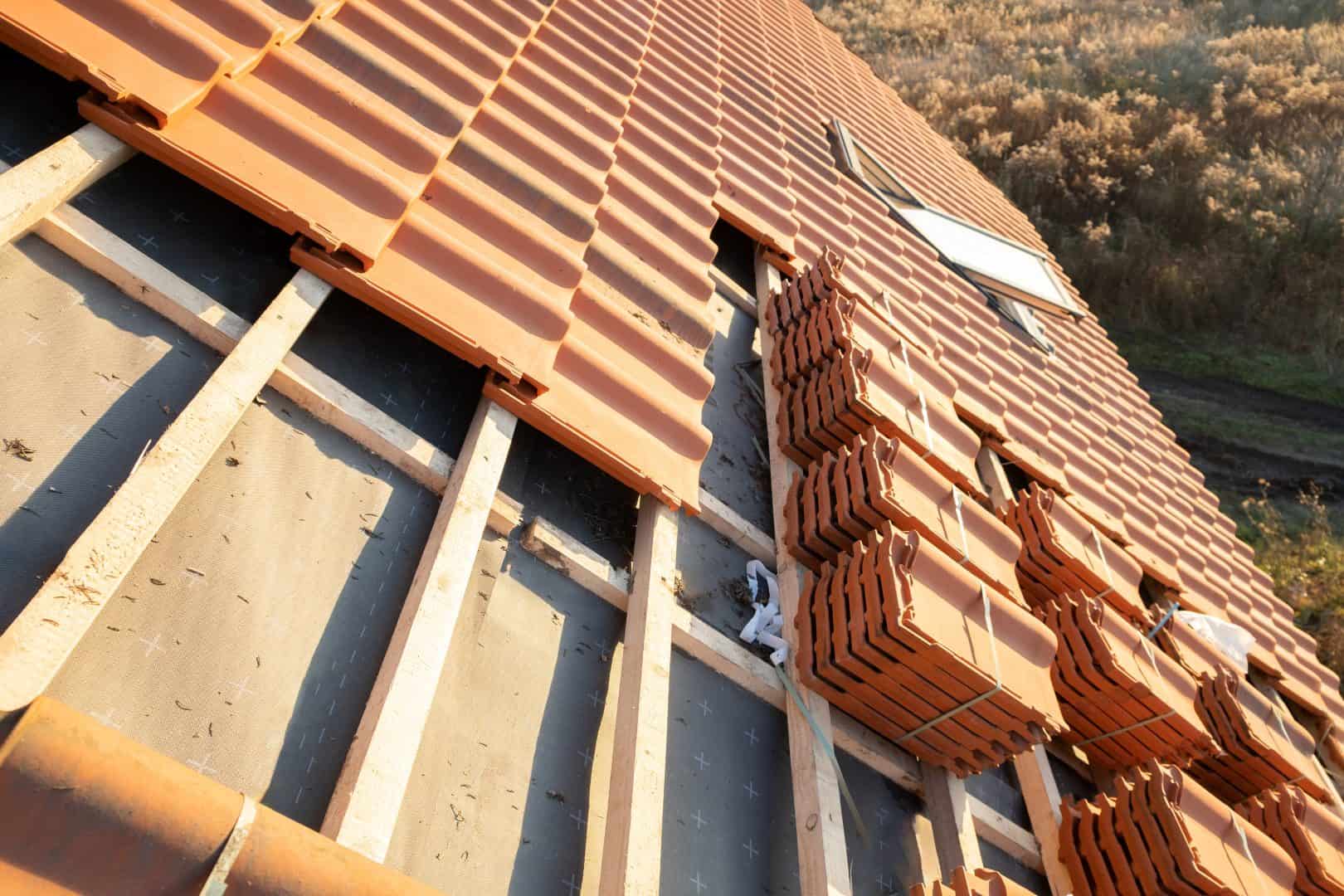How long will it take to install a new roof?
Fill Out The Form And We'll Get Back To You

Typically, you can expect the installation of a new roof to take anywhere from a few days to a couple of weeks, depending on various factors. Factors such as the size and complexity of your roof, the materials chosen, and the weather conditions can all influence the timeline. By understanding these elements, you can better plan for this significant home improvement and ensure the project runs smoothly from start to finish.
Key Takeaways:
- Installation time can vary based on the roof type – different materials and styles may require more or less time.
- The size of the roof plays a significant role; larger roofs will naturally take longer to install.
- Weather conditions can affect the installation timeline, with adverse weather potentially leading to delays.
Factors Influencing Installation Time
The installation time for a new roof can vary based on several factors that may impact the overall process. Key elements include:
- Roof size and complexity
- Material choice
- Weather conditions
- Type of roofing system
- Experience of the roofing crew
Perceiving these aspects can help you gain a clearer understanding of the timeline involved.
Roof Size and Complexity
At the outset, the size and design of your roof will play a significant role in determining the installation duration. Simple, single-storey roofs generally require less time compared to intricate, multi-level structures. Additionally, architectural features such as chimneys or skylights can add complexity, further extending the overall installation time.
Material Choice
Material selection is fundamental to the roofing process, significantly influencing the time it takes to complete your new roof.
This decision not only affects your roof’s durability and aesthetics but also impacts the installation timeline. For instance, asphalt shingles are typically quicker to install than heavier materials like slate or tile. If you opt for a more complex roofing system, such as a green roof or metal roofing, these require specialised skills and techniques, which may prolong the installation process. Understanding these nuances can aid you in making an informed choice while planning your roofing project.
The Roofing Process
Now, understanding the roofing process can significantly help you manage your expectations during the installation. From the initial assessment to the final touches, each step requires careful planning and execution to ensure the longevity and effectiveness of your new roof.
Initial Assessment
Against common belief, the initial assessment goes beyond just a visual inspection. A thorough evaluation encompasses checking for structural integrity, underlying damages, and necessary permits, allowing contractors to prepare adequately for the upcoming project.
Preparation and Setup
After the assessment, preparation and setup are vital stages in the roofing process. Your contractors will gather materials, scaffold the area, and ensure safety measures are in place before proceeding with the actual installation.
Indeed, preparation involves ensuring the worksite is clear and accessible, protecting surrounding areas from potential debris, and laying out materials for efficiency. By addressing these points beforehand, you can minimise disruptions and streamline the installation process, making it smoother for everyone involved.
Installation Steps
The installation steps will vary depending on your roof type, but generally, they involve removing old materials, repairing any underlying issues, and securing new roofing materials to create a durable surface. Your contractor will adhere to best practices to ensure a successful installation.
It is important for the contractor to follow a systematic approach during these steps, as precision is key to a long-lasting roof. They will typically start with stripping the old roof, checking for damage, and then layering new materials to provide maximum protection against the elements, ensuring that your new roof meets industry standards.
Weather Considerations
For any roofing project, the weather plays a significant role in determining how long it will take. Rain, snow, and extreme temperatures can hinder installation timelines. You can find insights on how long it takes tearing off and replacing a roof? to better understand these influences before starting your project.
Seasonal Impacts
Below, seasonal changes greatly affect your roofing schedule. During spring and summer, warm and dry conditions generally favour efficient installations. Conversely, autumn and winter may pose challenges, as increased precipitation and lower temperatures can slow the process.
Weather Delays
Above all, unexpected weather can lead to project delays. For instance, sudden storms or high winds may force your roofing team to halt work for safety reasons. Such interruptions can extend your timeline, so it’s wise to plan for potential setbacks and communicate with your contractor on anticipated durations.
Delays can also stem from weather forecasts that predict unfavourable conditions. Awareness of your local climate can be an asset; if you know that a rainy season is approaching, scheduling your installation beforehand may help prevent unexpected interruptions. Always be prepared for potential changes that could affect both your timing and budget.
Types of Roofing Materials and Their Impact
Not all roofing materials are created equal; each type can affect installation time and costs. Different materials influence the labour and skill required, which directly impacts how long the installation will take. Some common materials include:
- Asphalt Shingles
- Metal Roofing
- Slate
- Tiles
- Wood Shakes
Recognising your options and their implications is vital for planning your roofing project. For more information, check out How Long Does It Take to Replace a Roof?.
| Material | Installation Time |
| Asphalt Shingles | 1-3 days |
| Metal Roofing | 2-5 days |
| Slate | 5-7 days |
| Tiles | 3-5 days |
Asphalt Shingles
Around 70% of roofs in the UK are covered with asphalt shingles due to their balance of durability and affordability. Typically, this material allows for quicker installation, often taking just 1-3 days, depending on the roof’s size and complexity.
Metal Roofing
Any metal roofing project tends to involve slightly more intricate installation processes, which may extend the time frame to around 2-5 days. This depends on the specific metal type and the complexity of your roof. The longevity and energy efficiency of metal roofs often justify the added time, making them a popular choice among homeowners who prioritise durability.
The installation of metal roofing involves precise measurements and fitting, making it vital that you hire experienced professionals. This ensures both the quality of work and adherence to safety protocols, which can also influence the installation time. Be sure to discuss your specifics with contractors to accurately estimate when your new roof will be ready.
Professional vs. DIY Installation
Many homeowners face the decision of whether to hire professionals for a new roof installation or attempt a DIY project. While professional installation often ensures quality and safety, DIY projects can save you money and provide a sense of accomplishment. However, careful consideration of your skills, the complexity of the job, and safety risks is necessary in making the right choice for your situation.
Pros and Cons of Hiring Professionals
| Cons | |
|---|---|
| Quality workmanship | Higher cost |
| Time-efficient | Dependency on their schedule |
| Expertise in complex issues | Less control over the process |
| Safety assurance | Potential for miscommunication |
| Warranty on work | Less personal involvement |
DIY Installation Challenges
Challenges arise when you choose to tackle the roof installation yourself, as it requires a variety of skills and tools that you may not possess. Moreover, if you lack experience, you might face unexpected complications that could lead to costly mistakes or safety hazards.
At times, you might underestimate the amount of physical work and planning involved, as well as the need for precise measurements and techniques. Weather conditions can also hinder progress. Furthermore, access to the roof can be tricky if you are not equipped with the right safety gear. Understanding local building codes is vital to avoid potential legal issues, adding another layer of complexity to your DIY project.
Timeline Estimates for Different Roofing Types
Despite the variety of roofing materials available, each type comes with its own installation timeline. Here’s a quick reference to help you understand what to expect:
| Roofing Type | Estimated Installation Time |
|---|---|
| Asphalt Shingles | 1 to 3 days |
| Metal Roofing | 2 to 7 days |
| Slate Roofing | 5 to 14 days |
| Tiled Roofing | 3 to 10 days |
| Flat Roofing | 1 to 5 days |
Knowing the specifics of your chosen roofing type can significantly influence your planning and expectations.
Typical Timeframes
Between one to two weeks is a common range for most roofing installations. Factors such as weather conditions, roof size, and complexity may cause variations in these timeframes.
Case Studies
By examining several projects, the following case studies illustrate real-time data on roofing installations:
- Project A: Asphalt shingles, 1,200 sq ft, completed in 2 days.
- Project B: Metal roofing, 1,800 sq ft, took 5 days due to weather delays.
- Project C: Slate roofing, 2,000 sq ft, finished in 10 days with detailed craftsmanship.
- Project D: Tiled roofing, 1,500 sq ft, installed in 7 days with a complex design.
- Project E: Flat roofing, 1,000 sq ft, achieved in 2 days; straight-forward installation.
With these case studies in mind, you can better assess the timeframe required for your roofing project based on real-world examples. Understanding the influence of variables like weather, roof size, and material choice will help you plan effectively.
Summing up
Ultimately, the time it takes to install a new roof depends on various factors, including the size of your home, the type of roofing materials chosen, and prevailing weather conditions. Generally, you can expect the installation process to span from a few days to a couple of weeks. To ensure minimal disruption, it’s advisable to discuss timelines with your roofing contractor, allowing them to provide insights tailored to your specific project. Proper planning can lead to a smooth and efficient roofing experience that enhances your home’s value and protection.
FAQ
Q: How long does it typically take to install a new roof?
A: The duration for installing a new roof generally ranges from a few days to a couple of weeks. This timeframe depends on various factors, including the size and complexity of the roof, the type of materials being used, and the weather conditions. On average, for a standard-sized residential home, the installation process may take around 5 to 7 days.
Q: What factors can affect the installation timeline of a new roof?
A: Several factors can influence how long it takes to install a new roof. These include the roof’s pitch and layout, any existing roofing that needs to be removed, the type of roofing material chosen (e.g. shingles, tiles, metal), and the efficiency and experience of the roofing crew. Additionally, inclement weather such as rain or snow can cause delays in the installation process.
Q: Will the size of my house impact the time needed for roof installation?
A: Yes, the size of your house significantly impacts the time required for roof installation. Larger homes may have more complex roofing systems, which can prolong the installation process. For smaller homes, it might be quicker due to fewer square metres of roofing material needed. Each project is unique, so it’s advisable to consult with a roofing contractor for a more accurate estimate based on your specific situation.
Re-Roofing of House
The guys made a fantastic job of replacing the roof recently. They were fast, relaible and efficient. The work was carried out in a double-quick time.
Fascias and Soffits
We employed Wrights Roofs to replace the fascias, soffits and gutters that had been on the house since it was new. They carefully removed and replaced it all. Really impressed.
New Roof
We had an extension built and Wrights came and put a new roof on. They were excellent, no fuss, great value for money. Thank you.
Roofs, Flat Roofs Chimneys and Solar Panels
If you need roof work on your home, please complete the form or call us today.

